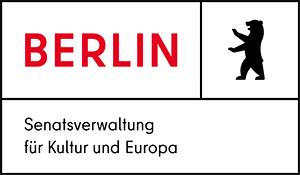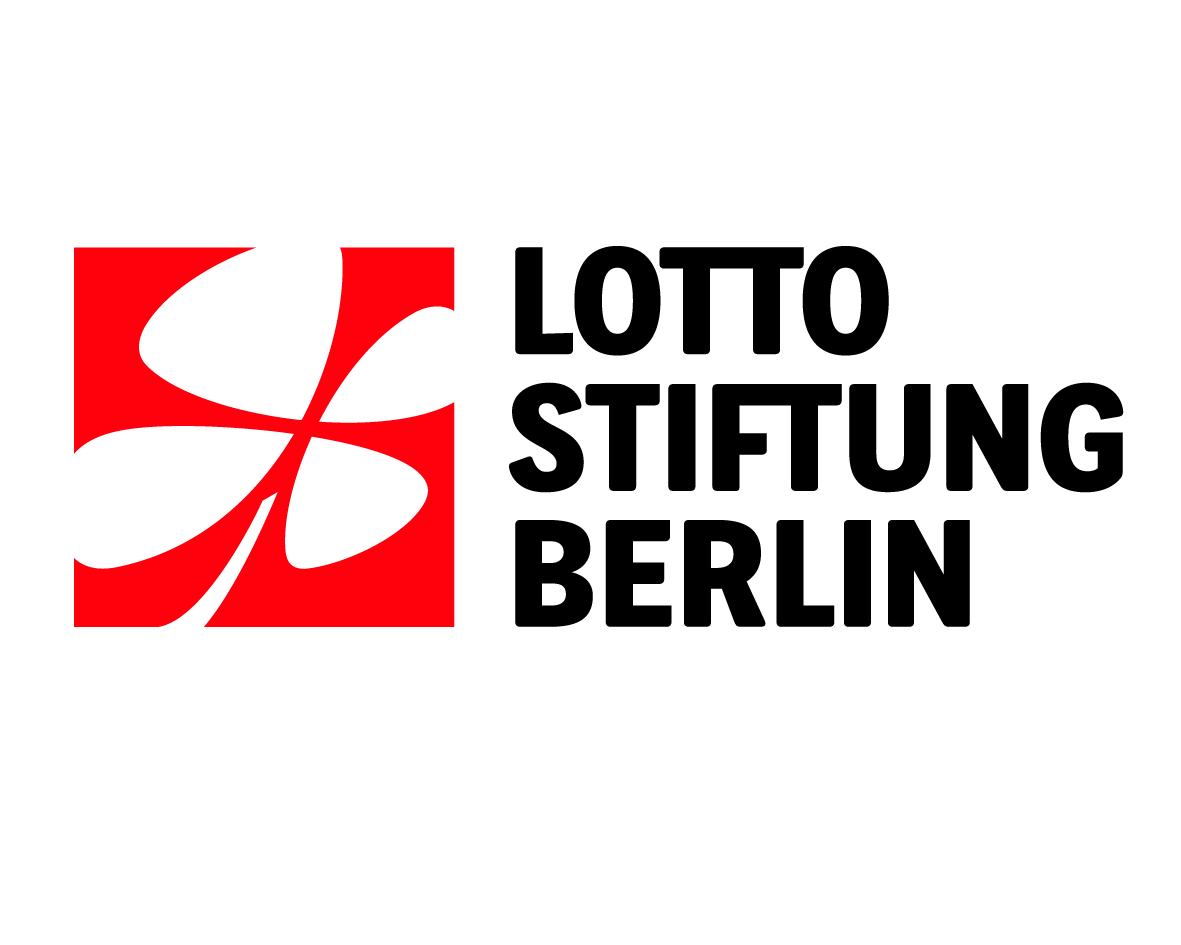26 February–30 April 2022
Artists
Mouna Abo Assali, Mehtap Baydu, Silvina Der-Meguerditchian, Christina Dimitriadis, Ece Gökalp, FUNKE Kollektiv, Edona Kryeziu, Eleni Mouzourou, Ceren Oykut, Viron Erol Vert
Participants
Humam Alsalim, Marwa Arsanios, Tekla Aslanishvili, Khaled Barakeh, BoB, Eliane Esther Bots, Aylin Kuryel, Amina Maher, Birgit Auf der Lauer & Caspar Pauli, Pejvak, Adnan Softić, A.G.A Trio, Florian Wüst, Nadin Reschke & Seçil Yersel, Zacharias Zitouni
Project group
Berk Asal, Selda Asal, Emre Birişmen, Erden Kosova, Melih Sarıgöl
The Twister project takes place at both nGbK locations and consists of an exhibition and panel discussions at Oranienstraße as well as an installation and workshops at nGbK Hellersdorf, and a catalog. It explores both political whirlwinds and the absurdity of nationalistic claims to geography and nature. Finally, the project looks at how diasporic communities from different countries can interact and cooperate.
The window exhibition took place from 1–13 March 2022 at station urbaner kulturen/nGbK Hellersdorf.
Usually referring to a devastating storm, the term twister is applied figuratively here to a recent upswing in nationalistic aggression and authoritarian tendencies on and beyond Europe’s eastern margins. Protracted disputes over the control of borders, resources, and territories around the Mediterranean and the Black Sea are leading to a resurgence of nationalist discourse and to new alliances in the quest for regional predominance. One side effect of this political regression is the increasingly repressive treatment of domestic critics, leading in turn to an exodus of dissidents to major cities in Western Europe – including Berlin.
One of the themes expressed in the works selected for the exhibition is the arbitrary character of political representations of geography and nature. Christina Dimitriadis (1967, Thessaloniki/Greece) deals with the connotations of the Aegean Sea in her photographic work. The title of her project Island Hoping is a play on words in which a consonant is removed from hopping to become hoping. This title contradicts the common image and narrative of the Aegean as an ideal destination and alludes to the fact that it is a mostly unreachable and deadly destination for migrants trying to reach the European continent. With a similar view of the irrelevance of political borders in the face of a holistic nature, Ece Gökalp’s (1988, İstanbul/Turkey) photographic essay A Mountain As Many deals with the mythical Mount Ararat. With long-distance shots of the mountain from two adjacent countries (Turkey, and Armenia) Gökalp’s extensive work maps the cultural differences, commonalities and continuities of the various narrative viewpoints. The official designation of ‘’Latzia’‘, an endemic oak tree of Cyprus, as the national tree of the island sets a starting point for Eleni Mouzourou’s (1983, Lefkosia/Cyprus) research-based project exploring and problematising the construction of the concept of the ‘’native’‘. Searching for the ‘’national plant’‘ questions the ways in which nature is being appropriated by politics of cultural and national identity.
Twisters, in the sense of political whirlwinds and the destruction they leave behind, are another major theme of the show. In Silvina Der-Meguerditchian’s (1967, Buenos Aires/Argentina) installation, The Silence of Stones, long strands of red wool emerging from dark rocks and spilling across the floor of the exhibition space recall the never-ending bloodshed resulting from conflicts based on ethnic and religious hostilities and the destruction of cultural heritage. Last year’s tragic events in Nagorno-Karabakh are just one of many examples. The FUNKE Collective (Selda Asal, Emre Birişmen, Melih Sarıgöl and Seçil Yersel) concentrates on the ‘’uncontrollability’‘ of the dynamics of current politics. The ‘ventilator table’ placed in a fictional control room will refer to the ongoing geopolitical conflicts and present a fragmentary and fluid counter-narrative. Edona Kryeziu’s (1994, Saarlouis/Germany) video work Greetings from Elsewhere takes a diasporic approach, addressing physical distance and the ongoing mental and emotional attachment to home. The film features video recordings made and exchanged by the artist’s extended family members living in Germany and Kosovo during the trouble-filled years of major political tensions and the war in the 1990s. Mehtap Baydu’s (1972, Bingöl/Turkey) sculptural work Suitcase Bread addresses the economic conditions forcing people to leave their home country. It’s a recurring history of movement stretching from the labour migration to Western European countries with growing economies in the post-war era to the recent waves of ‘’brain drain’‘, the ongoing flight of human resources from peripheral geographies, as well as the desperate exodus from countries falling apart due to repressive regimes and civil war.
Viron Erol Vert’s (1975, Varel-Oldenburg/Germany) wall installation Ménage à Trois employs the folding travel mirrors which have been used most typically during long journeys by train or by sea. The three sides of the mirror and the words inscribed on them allude to the psychological split occurring within one’s subjectivity while traveling between two distant places, and in most cases moving from one place to another and subsequently continuing to live the in-betweenness as a state of mind.
Map of Neither, the animation film by Ceren Oykut (1978, İstanbul/Turkey), based on excerpts from her earlier drawing practice, mirrors the ambiguities in the artist’s life, as someone from Istanbul’s creative classes who ended up living in a foreign county, unsure of being allowed to stay but at same time who does not identify with any of the official categories or popular definitions that is attached to the people who are displaced. Mouna Assali’s (1988, Damascus/Syria) film Mnemonic traces the physiological, emotional, social and cognitive effects of the ongoing civil conflict in Syria, especially those inflicted on people by the auditory violence of warfare. This also raises the question of how these memories persist in the body, even after one has moved to distant places.
An exhibition project at both nGbK locations
The exhibition takes place mainly on Oranienstraße and, on a smaller scale, in Hellersdorf, where two monitors placed on the windows of station urbaner kulturen give glimpses of the exhibition at Oranienstraße. The first video is a composition of images from the exhibited works, while the second video displays excerpts from the contribution of FUNKE collective to the show. Many of the presented works offer poetic and minimalistic comments on nationalistic shortsightedness, displacement and the experience of being in exile, but the problems addressed call for a more in-depth engagement. The latter is provided through the program of accompanying events.
In this way, Twister also sees itself as an act of intervention through art: an attempt to highlight controversial issues of our time, and to bring about change.
Events:
Friday, 25 February 2022, from 14:00
nGbK exhibition space
Soft opening of the exhibition & hourly guided tours with the project group (ger/eng)
Guided tours
nGbK exhibition space
Saturday 5 March 2022, 18:00
with Selda Asal (eng)
Saturday, 12 March 2022, 18:00
with Erden Kosova (ger)
Saturday, 19 March 2022, 18:00
with Berk Asal (eng)
Saturday, 26 March 2022, 18:00
with Emre Birişmen (eng)
Saturday, 16 March 2022 18:00
with Erden Kosova (ger)
Saturday, 23 April 2022, 18:00
with Melih Sarıgöl (eng)
Film Screenings curated by Florian Wüst
nGbK event space + livestream
The two short film programs reflect multiple trajectories which traverse and connect Europe, Turkey, and the South Caucasus—from the history of political violence and forced migration to the future of new global infrastructures against local ecological knowledge.
Friday, 15 March 2022, 19:00
„Memories of Displacement“ (Original with eng subtitles)
and followed by a talk with Adnan Softić (eng)
Schiffe mit Waren und Stoffen aus aller Welt stoßen mit ihren Wellen die Bibby Challenge an, Adnan Softić, DE 2020, 12’
In Flow of Words, Eliane Esther Bots, NL 2021, 22’
first in first out, Zacharias Zitouni, DE/DZ 2019, 26’
A Defense, Aylin Kuryel, TR/NL 2021, 16’
Friday, 22 March 2022, 19:00
„Deep Landscape“ (Original with eng subtitles)
and followed by a talk with Tekla Aslanishvili (eng)
A Passage, Pejvak, CA/AM 2019, 17’
Scenes from Trial and Error, Tekla Aslanishvili, DE/GE 2020, 30’
Who is afraid of ideology? Part I, Marwa Arsanios, LB 2017, 18’
Friday, 1 April 2022, 19:00
nGbK exhibition space + livestream
Concert by A.G.A Trio
A.G.A Trio is made up of Deniz Mahir Kartal, Mikail Yakut, Arsen Petrosyan, who are from Turkey, Georgia, and Armenia respectively. Masterfully playing the three kindred instruments - kaval, duduk, and accordion - A.G.A Trio creates a harmony that uncovers the melodic amplitude and the vast array of timbres echoing between the passages that bridge the three neighbors. The virtuosos assemble folk tales, love songs of bards, laments for the fallen, respect for nature, and ultimately, the meeting of people and their co-existence.
https://agatrio.com/
Wednesday, 13 April 2022, 19:00
Event space 1st floor + livestream
Panel Discussion with Humam Alsalim, Khaled Barakeh und Amina Maher (eng)
19 Uhr: Online Networks for Artists from Syria: A conversation with Humam Alsalim and Khaled Barakeh, moderated by Erden Kosova
20:15 Uhr: Healing through the Screen: A conversation with Amina Maher and screening of her film, ‘’Letter to my Mother’‘ (2019, 19 min), moderated by Şirin Fulya Erensoy
The first of the two panels will focus on the structures of solidarity built by artists in exile. The panelists will talk about the practical challenges of exhibiting art and joining local networks in a newly arrived country and share their own experience in establishing collective platforms.
The second panel will host LGBTQI+ artists living in Berlin, who have previously experienced the oppression and censorship of authoritarian regimes targeting non-normative genders and sexualities. The artists will share with the audience how they use artistic expression to move beyond normative discourses and how creativity can serve as a form of survival providing hope for real and lasting change.
Saturday, 30 April, 18:00
nGbK exhibition space
Finissage and performance „Black on Black“ with Ceren Oykut & FezayaFirar
“Black on Black“ is an audiovisual performance series comprising live drawing accompanied by live electronic music. The surprising, archaic, tameless lines of Ceren Oykut, which tell stories of urban transformation, language and living beings, are accompanied by FezayaFirar’s live synthesized Sci-Fi acoustic waves.
Workshops at station urbaner kulturen
A considerable number of residents of the Hellersdorf district in Berlin, where station urbaner kulturen is located, have made an experience of migration. Most of them have left their home countries due to political and economic distress in the past and therefore, their experience
presents a valuable insight for the thematic framework of the Twister exhibition.
Two separate workshops that are created by the artists Birgit Auf der Lauer & Caspar Pauli and Nadine Reschke & Seçil Yersel will reference the main exhibition with the participation of neighbors of the station urbaner kulturen and the nGbK audience.
Saturday, 5 March & Sunday, 6 March, 14:00-17:00
„Freude - eine Untersuchung“ [“Investigating Joy“] with Birgit Auf der Lauer & Caspar Pauli (ger/eng)
What are our inner resources when going through tough times? Maybe we lose touch of them but without them we probably wouldn’t survive. In this regard joy plays a major role. Over the course of a weekend this workshop invites people to do remembrance work and delve into joyful memories. The participants work with their attention, senses and body to carefully retrieve and explore different memories of joy and focus on how this feels in the very moment.
A second part of the workshop revolves around the question of how to make this elusive experience more tangible. With pigment ink and paper, the participants will create color studies which correlate with the different nuances of joy from their memories. The studies will be reproduced, combined and exchanged to form the pages of a collective book. The fleeting moment of being joyful will become more concrete, instantly retrievable, and touchable.
Saturday, 12 March & Sunday, 13 March, 13:00-16:00
„Come As You Are“ with Nadin Reschke & Seçil Yersel (ger/eng)
How does what I wear change what I see and experience? Using fabrics and specially designed clothes and props for the workshop, artists Nadin Reschke and Seçil Yersel invite Hellersdorf women* to discover their district differently and to stage themselves in its environment.
Financed by


